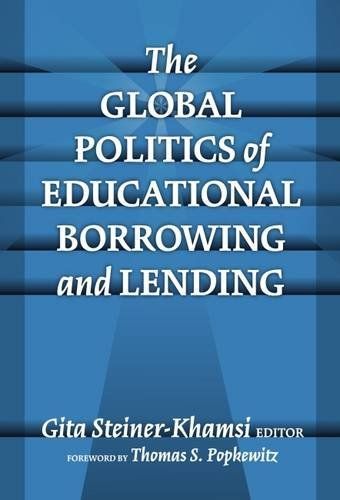
The Global Politics of Educational Borrowing and Lending
The globalization of educational policy has become a popular, if not ubiquitous, phenomenon among educational policymakers across the world. It has led many observers to conclude that educational systems in different parts of the world are converging towards one international (neo-liberal) model of school reform. This practice of borrowing and lending school reforms requires a serious examination of the politics and the economics of transnational educational transfer. In this volume, Steiner-Khamsi and her colleagues provide an in-depth empirical and critical examination of the practice of global educational policy. Contributors question the value of importing and exporting educational policies, analyze who benefits from these arrangements, and test the effectiveness of adapting one country's policies in other (often quite culturally distinct) countries. The book investigates how global policies have been implemented locally, and examines the extent to which they work in diverse locales. teiner-Khamsi and her colleagues also examine the role and practices of non-governmental organizations (NGOs), multilateral organizations, and the World Bank in fostering how educational policies are disseminated and adapted across national and cultural boundaries.